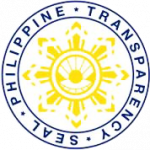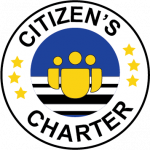- GOVPH
- About BOC
- Issuances
- Aduana Library
- Memoranda
- Memoranda for Reference Values
- Customs Administrative Order (CAO)
- Customs Administrative Order (CAO) 2025
- CUSTOMS ADMINISTRATIVE ORDER (CAO) 2024
- Customs Administrative Order (CAO) 2023
- Customs Administrative Order (CAO) 2022
- Customs Administrative Order (CAO) 2021
- Customs Administrative Order (CAO) 2020
- Customs Administrative Order (CAO) 2019
- Customs Administrative Order (CAO) 2018 and Older
- Customs Memorandum Order (CMO)
- Customs Memorandum Circular (CMC)
- Customs Memorandum Circular (CMC) 2025
- Customs Memorandum Circular (CMC) 2024
- Customs Memorandum Circular (CMC) 2023
- Customs Memorandum Circular (CMC) 2022
- Customs Memorandum Circular (CMC) 2021
- Customs Memorandum Circular (CMC) 2020
- Customs Memorandum Circular (CMC) 2019
- Customs Memorandum Circular (CMC) 2018 and Older
- Customs Special Order (CSO)
- Custom Training Circular (CTC)
- Joint Memorandum Orders (JMO)
- Trade
- News Room
- Port Updates
- HR Corner
- Quicklinks
- Infographics
- Bureau of Customs Webinar
- Auction and Sales
- Bid Opportunities
- Invitation to Bid / Request for Quotation / Invitation for Negotiated Procurement / Notice to Conduct Direct Contracting – 2023
- Invitation to Bid / Request for Quotation / Invitation for Negotiated Procurement / Notice to Conduct Direct Contracting – 2022
- Invitation to Bid / Request for Quotation / Invitation for Negotiated Procurement / Notice to Conduct Direct Contracting – 2021
- Invitation to Bid / Request for Quotation / Invitation for Negotiated Procurement / Notice to Conduct Direct Contracting – 2020
- Invitation to Bid / Request for Quotation / Invitation for Negotiated Procurement / Notice to Conduct Direct Contracting – 2019
- Invitation to Bid / Request for Quotation / Invitation for Negotiated Procurement / Notice to Conduct Direct Contracting
- Bid Documents
- Bid Supplement
- Summary of Awarded Contracts
- Summary of Contracts Awarded 2023
- Summary of Contracts Awarded 2022
- Summary of Contracts Awarded 2021
- Summary of Contracts Awarded 2020
- Summary of Contracts Awarded 2019
- Summary of Contracts Awarded 2018
- Summary of Contracts Awarded 2017
- Summary of Contracts Awarded 2016
- Summary of Contracts Awarded 2015
- Summary of Contracts Awarded 2014
- Summary of Contracts Awarded 2013
- Annual Procurement Plan
- Customs Knowledge Resources
- References
- Gender Equality and Diversity
- Philippine National Trade Repository
- Philippine Tariff Finder
- Authorized Economic Operator
Customs Sues Importer Who Uses Fake Tariff-Free Forms and a Major Supplier of Telecom Products
On fake tariff-free forms
The campaign against the use of fake forms on tariff-free goods netted its first catch with the filing today of a smuggling case against an importer who submitted a bogus ASEAN Common Effective Preferential Tariff (ASEAN CEPT) form to support the non-payment of duties on her shipment of imported fabrics.
Sued was Juliana Oriel Octavio, proprietress of Escolta-based ADVENTURE Trading, who was able to evade payment of 10% duty on the nearly 600 packages of fabrics she imported from Thailand last November. Also charged was customs broker Geraldine Purog of Building 9 D, Bayani Street, Dona Imelda, Quezon City.
Records of the case would show that on November 10, 2010, a shipment of 593 packages of fabrics with a declared dutiable value of P548,550 and consigned to ADVENTURE Trading, arrived at the Port of Manila . Normally, such shipment should have been subjected to a duty rate of 10% but the importer was able to secure its release without payment of duties because the same was declared to be zero-rated based on the submitted ASEAN-CEPT FORM D.
However, verifications conducted by the Bureau’s Post-Entry Audit Group (PEAG) revealed that the said ASEAN-CEPT FORM D was invalid because it did not bear the signature of the issuing authority.
According to Customs Deputy Commissioner Gregorio Chavez, concurrently the executive director of the agency’s Run-After-The-Smugglers (RATS) Group, “the deliberate submission by ADVENTURE Trading of spurious ASEAN CEPT FORM D constitutes a clear violation of Section 3602 of the Tariff and Customs Code of the Philippines which prohibits the filing of any document for the purpose of securing the payment to himself or others of any drawback, allowance or refund of duties.”
The crime is punishable by imprisonment of not less than two years but not more than 8 years and a fine equivalent to not less than five times but not more than eight times the landed cost of the contraband.
As a result, explained CHAVEZ, ADVENTURE Trading should now be made to pay the government P4,632,832 based on the computation of a landed cost of P579,174 multiplied eight times.
Alvarez stressed that while the ADVENTURE Trading case might look insignificant in terms of dutiable value and revenue lost, it nonetheless highlights the effectiveness of the agency’s audit procedures and the enhanced capability of the BOC to plug major revenue leakages.
The Customs chief said the use of fake transaction form by smuggling syndicates deprive the government of much-needed revenues since the China-ASEAN Framework Agreement on Trade in Goods has effectively eliminated tariffs on 90 percent of the products being produced and sold in the expanded free trade area.
Last year, some 54,000 import entries cleared customs either tariff-free or with reduced tariff on the strength of Certificates of Origin submitted by importers.
“If even just a small percentage of those entries cleared customs with the use of spurious documents, government’s revenue loss would sum up to hundreds of million of pesos,” he added.
Alvarez warned importers that all shipments that had been granted preferential tariff would be subjected to post-audit scrutiny and that those who would be found to have abused and misused the privilege would be prosecuted to the full extent of the law.
It will be recalled that last March, Alvarez ordered a thorough screening and validation of “Certificate of Origin” (CO) covering importations claiming preference under various Free Trade Agreements (FTA) such as the ASEAN Trade in Goods Agreement (ATIGA); ASEAN-China Free Trade Agreement (ACFTA); ASEAN-Korea Free Trade Agreement (AKFTA); ASEAN-Japan Comprehensive Economic Partnership Agreement (AJCEPA); ASEAN-Australia-New Zealand Free Trade Agreement (AANZFTA); ASEAN-India Free Trade Agreement (AIFTA); and, Philippine-Japan Economic Partnership Agreement (PJEPA).
On major supplier of telecom products
Also today, the BOC initiated a complaint against a major player in the construction, design, engineering and distribution of various telecom products for grossly undervaluing its optical fiber importations by as much as 81.66%.
Listed as respondents were Darren E. Abcede, general manager of Interlite Corporation with business address at Unit 910 Herrera Tower, 98 VA Rufino Street , Salcedo Village , Makati and customs broker Ronan R. Raymundo of Block 7, Lot 3 Silver Street, Camella North Springville, Molino, Cavite . Also listed as John Doe/s and Jane Doe/s were customs employees and other individuals who participated, directly or indirectly, in the release of the fraudulent optical fiber cable shipments.
According to its website, Interlite has contributed to the construction and/or supply of several telecom and data backbone projects in the country, and at times not only provided relevant engineering works during pre- construction periods of pilot projects but provided relevant upgrades and solutions in improving existing communication, data, and CAtv networks throughout the country. Its clients include Globe Telecom, Philcom, Bayantel Inc. and Cablelink.
Records of the case would show that between March and July this year, Interlite imported a total of 59,000 kilos of optical fiber cables with a declared per kilo value ranging between one US dollar and $2.35.
Broken in 12 import entries which were unloaded at the Port of Manila, Interlite’s shipments were assessed a value added tax (VAT) totaling a measly P603,979 since the company falsely declared a total dutiable value of only P4,929,811.
“However, disclosed Alvarez, “investigations conducted by the Run-After-The-Smugglers (RATS) Group of the Bureau of Customs revealed that other importers of the same product declared a per kilo value of US$9.46.
If recomputed based on the correct value of US$9.46 a kilo, Interlite’s total importation value would increase to P26.89 million for which the company should have paid VAT totaling P3.24 million.
Customs Deputy Commissioner Gregorio Chavez, concurrently the executive director of the RATS Group, accused Interlite of submitting falsified and spurious invoices to justify the gross undervaluation.
For committing various fraudulent practices in violation of the country’s Customs and Tariff Code, Chavez said it was not enough to require Interlite to pay an additional P2.64 million in VAT plus penalties and surcharges.
“The proper restitution should be equivalent to the sum of the dutiable values of the entire 12 import entries totaling P26.89 million,” he added.
Alvarez said that for trying to save P2.64 million, “Interlite now stands to lose the more than P26 million they spent on their optical fiber cable importations.”
The customs chief instructed Chavez to subject to post-entry audit all previous importations made by Interlite. He said the company’s liability could increase by several million pesos more if it could be established that it had used the same modus operandi in the past.
He also ordered Chavez to file as soon as possible an amended charge sheet that would include the names of customs employees who aided and abetted the fraudulent importations of Interlite.
ABOUT GOVPH
All content is in the public domain unless otherwise stated.






